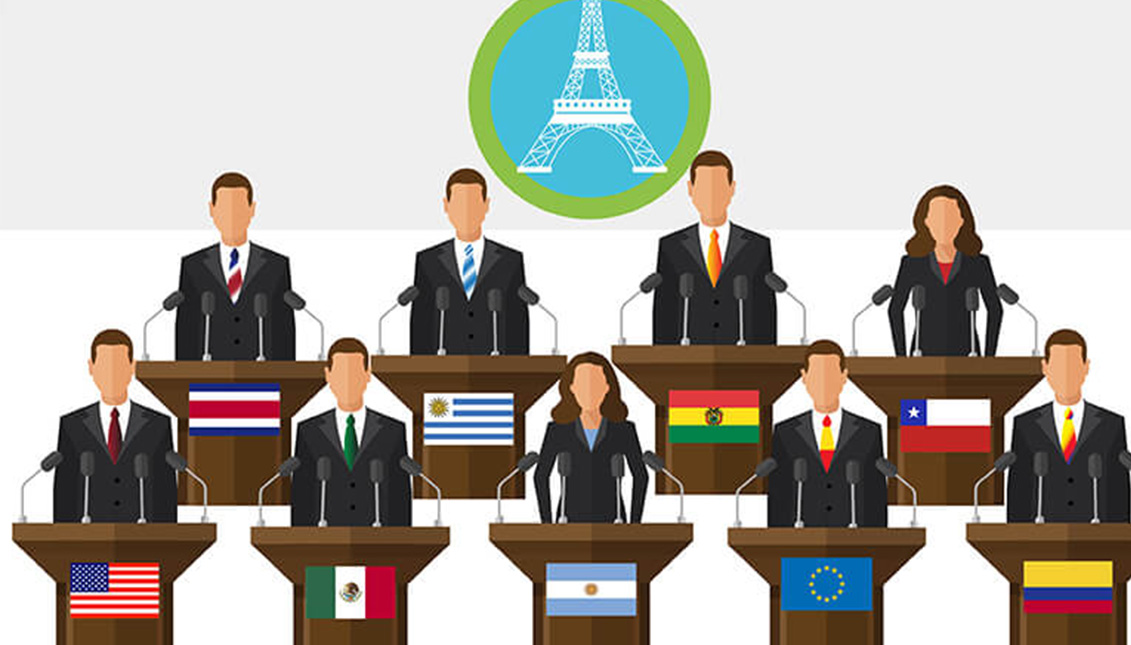
Inside the U.S.'s complicated return to the Paris Agreement
Xi Jinping defended the Paris Agreement this Tuesday during the BRICS summit with his eyes set on the United States.
The presidential campaign from Democrats and Joe Biden has been full of references to renewable energy and a green future that not only pleased its constituents, but also many world leaders. Since Nov. 4, 2020, one year after its first warning, the United States was no longer part of the most ambitious pact to date to combat climate change — the famous Paris Agreement, where Barack Obama had committed to reduce the country's carbon emissions from 26% to 28%.
In short, they failed to reach them, and it's something that makes the rest of the world uneasy because the future of the Earth can only be a global effort, and deep down, it represented an unfair competition as other participants were really striving to reduce certain industries.
The agreement signed by more than 200 countries in December 2015 in the French capital was the promising heir to the 1997 Kyoto Protocol, which had the objectives to ensure that global warming would not be irreversible, reduce the subsequent loss of animal diversity, and make sure the average temperature of the planet would not exceed two degrees in comparison to the pre-industrial era.
At the time of the Paris Agreement, the United States was a leader, as it was one of the world's main polluters with 12.10% of the world's CO2 emissions. The country's leaders promised that by 2050, they would reduce their emissions by 80% and contributed $3 billion to the fund. With the US resigning, it meant serious budgetary problems for the pact.
Joe Biden went much further in his campaign, which is why investment in green energy increased after his victory, and committed to an even more efficient goal: new, low-net emissions by 2050 and $2 trillion for the fund. The truth is, the European Union (9% of emissions) has recently committed to a similar outcome in the same timeframe and China (29% of emissions) has joined for the target year of 2060. Trump also withdrew American funding from the Green Climate Fund, and Biden is expected to contribute $3 billion, thus fulfilling Obama's promise.
RELATED CONTENT
Therefore, it is not surprising that the rest of the world's leaders, as long as the election drama does not prevent it, are reviving spirits in the face of a possible climate comeback. That's especially given the added requirements mass producing a COVID-19 vaccine that must be distributed globally by being frozen in nitrogen, which could affect global emissions reduction targets.
Aware of these issues, the French Foreign Ministry stressed the need for new deals, while Chinese President Xi Jinping defended the Paris agreement at his meeting with the BRICS countries (Brazil, Russia, India, China and South Africa).
"Global warming has not stopped because there is a pandemic [...] I recently announced at the UN China's initiative to increase its domestic voluntary contributions so that our CO2 emissions will decrease by 2030 and we will be carbon neutral by 2060," he said.
On an issue that already goes beyond the sovereignty of the limits of the countries involved, it seems that building bridges is the best strategy unless they are made of weak promises.










LEAVE A COMMENT:
Join the discussion! Leave a comment.